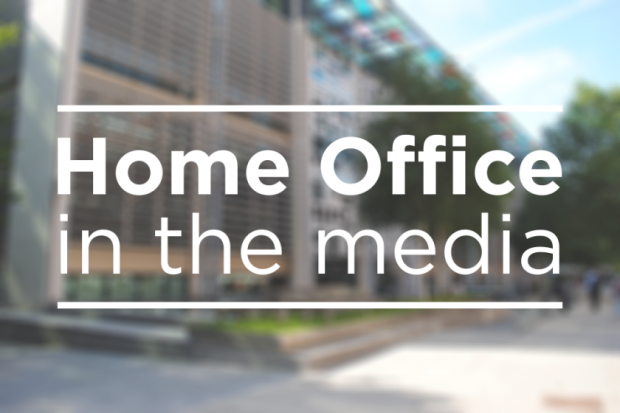Asylum appeal judgement
The Independent and Sun report that a man seeking asylum in the UK on the grounds of his sexuality is to have his case reviewed after a judge ruled that he was not “effeminate” enough to be gay.
The coverage states that the asylum seeker, who cannot be named due to an anonymity order, was told by the appeal judge that he did not have a "gay demeanour".
Barrister Rehana Popal told the Independent that asylum seekers routinely lose their cases on appeal because judges have “absurd” reasons to refuse to refute their sexuality.
The paper further reports that official figures published last November show that the proportion of LGBT+ asylum claims rejected by the Home Office have surged in recent years, with 78 per cent refused in 2017.
A Home Office spokesperson said:
The UK has a proud record of providing protection for asylum seekers fleeing persecution.
Each case is considered on its individual merits by experienced caseworkers, with all available evidence carefully and sensitively considered in light of published country information.
The appeals process and decision of the judges is independent of the Government.
Stops at ports
The Guardian reports that, according to the human rights group Cage, Muslims are being detained at ports for up to six hours by law enforcement officers using counter-terrorism powers.
The organisation says there is growing anecdotal evidence that Muslim women are being forced to remove their headscarves during such stops.
According to the paper, Schedule 7 of the Terrorism Act allows people to be detained at the border if law enforcement is concerned they may be involved in terrorism. Detainees have no right to silence and must surrender their phones, computers and password and must provide DNA and fingerprints upon request.
One of Cage’s complaints is that the Home Office does not respond to Freedom of Information requests to break down the number of people stopped by their religion.
Muslims who have been stopped report that questions often focus on their religious beliefs, with officers asking if they pray frequently, if they fast and if they have been to Mecca.
The paper notes that figures, published by the Home Office, relating to the use of schedule 7 show that in the year to March 2019, 11,151 stops were conducted, down from 85,557 in the year to March 2010.
A Home Office spokesperson said:
The use of Schedule 7 is vital to the police in their work to combat terrorism and the authors of this report are clearly misrepresenting facts to fit their own pre-determined conclusions.
In his 2014 report, the former Independent Reviewer of Terrorism Legislation, Lord Anderson QC, found no evidence of the power being exercised in a racially discriminatory manner. He also said that one would expect its exercise to be ethnically ‘proportionate’ to the terrorist population that travels through UK ports.
Between January 2015 and June 2018, Schedule 7 examinations assisted in approximately 30% of cases where an individual was later charged under the Terrorism Act.

